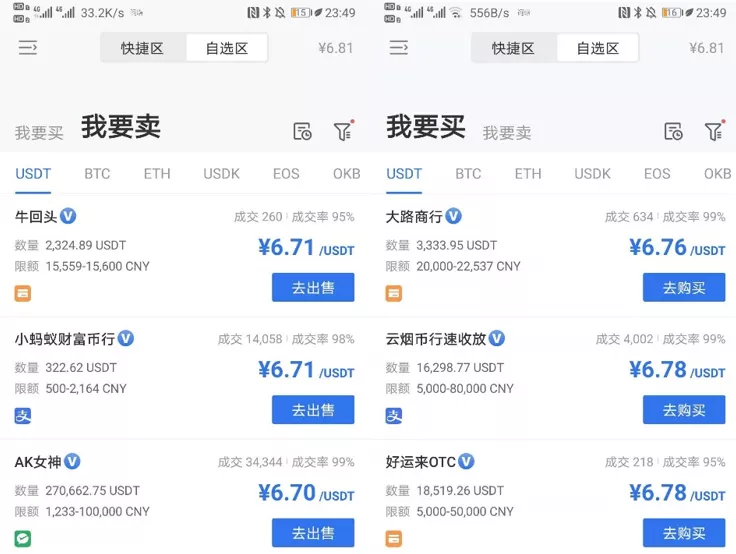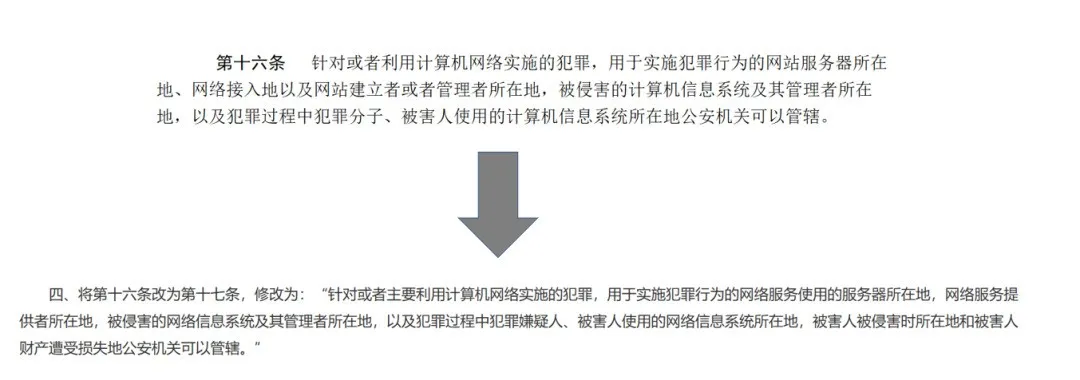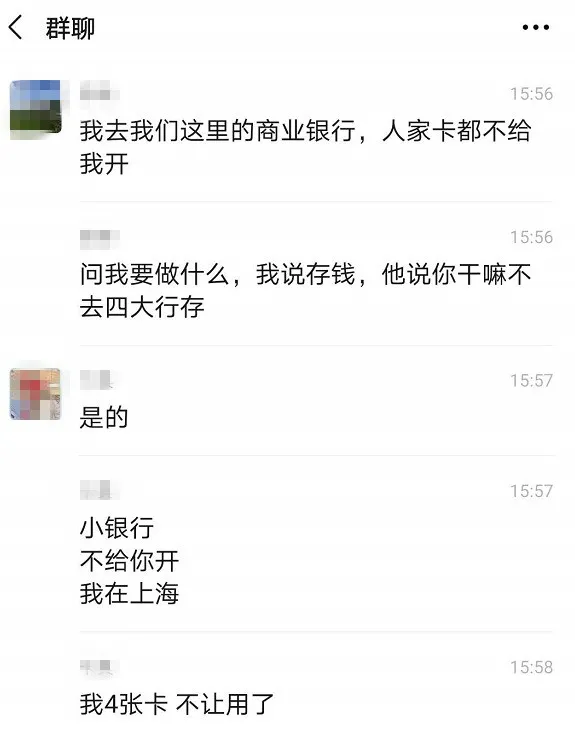The new regulations continue to take effect, and the OTC industry faces the strictest freeze on cards
1. The Current Situation and Causes of the New Wave of "Frozen Card Tide"
Since September, a new wave of "frozen card tide" has swept through the cryptocurrency circle again. Many readers have reported to Chain Catcher that their bank cards used for OTC trading have been frozen, and numerous investors have discussed similar situations on social media platforms like Weibo. "Many people I know have had their cards frozen, with transactions ranging from hundreds of thousands to as low as two thousand yuan," said Xue Xu (pseudonym), a cryptocurrency investor affected by the freeze.
Although the phenomenon of frozen cards is not uncommon in the cryptocurrency industry, this wave is more severe in terms of its coverage and extent compared to previous instances. There have even been reports of users' subway cards being frozen as well, and many users have reported difficulties in reopening accounts at mainstream banks, causing significant inconveniences in their lives.
At the same time, the depth of OTC platforms on major exchanges has noticeably decreased, with price differences in the USDT buying and selling areas often exceeding 2 cents, and on the OKEx platform, the difference has reached as high as 5 cents (as shown in the image below). This phenomenon reflects a significant decline in both the number and activity of OTC merchants.

The image shows a screenshot of the OKEx OTC platform on a certain day at the end of September.
Another obvious sign is that most mainstream exchange OTC platforms no longer support transactions via Alipay; transactions can only be conducted through bank cards. An OTC merchant manager told Chain Catcher that the reason is that Alipay accounts have become "useless" after three days of use. This indicates that third-party payment channels are likely also conducting anti-money laundering actions that are as stringent as those for bank card channels.
A relevant person from Huobi also informed Chain Catcher that they have indeed received a large number of reports from users about their bank cards used for OTC trading being frozen. However, this issue is not limited to the cryptocurrency industry; related information has also emerged in various fields such as foreign trade and finance. From some social media posts, it is evident that many people in the foreign trade industry are complaining about their bank cards being frozen, with some articles spreading widely.
The issue reflected by this phenomenon is that the large-scale freezing of cards is not specifically targeting the cryptocurrency OTC sector but is a result of domestic police strengthening their anti-money laundering efforts, which inevitably affects the OTC trading field.
Based on interviews with multiple industry insiders and online data compilation by Chain Catcher, the reasons for this large-scale frozen card phenomenon can be roughly summarized into two points.
First, domestic telecom fraud, pig-butchering scams, pyramid schemes, and other fraudulent activities continue to be rampant, defrauding a large amount of money from ordinary citizens. Coupled with the long-active overseas gambling platforms, this has led to an increasingly huge demand for money laundering. Cryptocurrencies, being a relatively suitable medium for money laundering, have become the preferred tool for many fraudsters or gambling platforms to transfer funds and launder money. Some criminal gangs even collaborate with cryptocurrency OTC merchants for money laundering, and many well-known OTC merchants have already been investigated by the police this year, with several related crackdowns recently reported.
According to Hebei News, on September 3, the police in Cangzhou, Hebei, successfully cracked a major telecom network fraud case, arresting 12 suspects including Zhu Mouhui and seizing 3.95 million yuan in illicit funds. During interrogation, members of the criminal gang confessed to helping overseas fraud groups split and transfer funds on virtual currency trading platforms like OKEX and Huobi since 2020 to "clean" the money for profit.
According to reports from the Payment Industry, the People's Court of Yongqiao District, Suzhou City, recently tried a case involving the LON project suspected of being a pyramid scheme. This project attracted people from various regions to register and invest through methods such as rebates for investing in LON coins and developing members, totaling 13,251 members and defrauding over 50 million yuan in investment funds. During the handling of the illicit funds, the main perpetrators converted the investment and rebate money into Litecoin and other virtual currencies through Huobi to achieve money laundering.
Additionally, according to a report by the Beijing News on September 24, Liao Jinrong, director of the International Cooperation Bureau of the Ministry of Public Security, stated at the 9th China Payment and Clearing Forum that preliminary statistics show that over one trillion yuan in gambling-related funds flow out of the country each year, and some gambling gangs use virtual currencies to collect and transfer gambling funds, posing significant challenges to law enforcement efforts.
Second, relevant national departments are continuously strengthening anti-money laundering efforts and have issued stricter guiding documents, leading to more stringent regulatory policies from major banks. A senior OTC industry insider, Fu Mo (pseudonym), told Chain Catcher that this wave of frozen cards is likely related to the "Decision of the Ministry of Public Security on Amending the Regulations on the Procedures for Handling Criminal Cases by Public Security Organs," which was reviewed and passed in early July this year. This decision made 141 amendments to the original measures, many of which pertain to the determination of jurisdiction in cases.
According to Chain Catcher’s inquiries, in terms of crimes committed using or involving computer networks, the new regulations have added that the public security organs can exercise jurisdiction over the location where the victim was harmed and where the victim's property suffered losses. (See the image below for specifics.)

As telecom fraud cases often involve citizens from across the country, this adjustment effectively grants public security organs in most regions of the country the authority to exercise jurisdiction over related fraud cases, rather than being limited to a very few regions.
According to existing regulations, as long as approved by the head of a public security organ at or above the county level, the public security organ can issue a notice to assist in freezing assets, notifying financial institutions and other units to execute it. Considering that different regional public security organs may have slight differences in understanding legal details and case specifics, as well as varying levels of emphasis and work energy, the aforementioned adjustments are likely to lead to a sharp increase in frozen card phenomena.
Moreover, the aforementioned amendment took effect on September 1 of this year, which coincides with the trend of the high incidence of frozen cards since September.
It is foreseeable that with the further tightening of relevant regulatory policies, the phenomenon of frozen cards in cryptocurrency OTC trading will become a norm in the industry for a long time. Therefore, understanding more about frozen card prevention measures and how to respond to frozen card phenomena is particularly necessary for most cryptocurrency OTC traders.
2. How to Respond to Frozen Card Events
To cope with potential frozen cards, the most important thing for users is to learn prevention techniques to minimize risks in OTC trading.
Based on relevant interviews and online data, OTC trading typically has the following points to pay attention to: Find trusted merchants to establish fixed channels for deposits and withdrawals, prioritizing safety over seeking the best price every time; maintain ample fiat currency cash flow to reduce the frequency of OTC trading; use cards from small or local banks for transactions; use less common bank cards for transactions to reduce the inconvenience caused by card freezes.
According to Chain Catcher, there are usually two situations when a bank card is frozen. One is a bank freeze, which some industry insiders refer to as a stop payment, meaning the bank card can only receive payments but not make payments. This is generally triggered by the user's trading behavior activating the bank's risk control system, leading to a self-initiated freeze by the bank. If the user's funds are indeed not involved in illegal activities, this situation usually unfreezes automatically after three days.
The other is a judicial freeze, which generally occurs when public security organs freeze bank cards that have financial transactions with parties involved in a case during their investigation. This usually lasts for six months to a year, and the card is unfrozen after the case is concluded. However, Xue Xu told Chain Catcher that he knows many cases that have not been unfrozen even after more than a year, which may indicate a permanent freeze.

The derivative impact of frozen bank cards, from WeChat groups.
Regarding user response measures, Fu Mo pointed out to Chain Catcher that if users encounter a frozen bank card after OTC trading, they can wait about three days to assess the nature of the freeze. If it remains frozen after three days, they need to contact the bank and public security organs to understand the situation.
Guo Yatao, head of the legal team, advised users to first contact the bank to understand the reason for the freeze and the investigating agency that applied for the freeze, and to try to get in touch with the investigating agency in a timely manner to explain the situation and provide relevant materials. If the investigating agency requires the investor to go to the local area to cooperate with the investigation, it is recommended to have someone accompany them or directly seek professional legal assistance.
"For those who have already provided sufficient proof materials but still cannot unfreeze their cards, or if they find that the case handlers have violated regulations during the communication process (for example, if it is verified that the funds involved in the case are unrelated but still not unfrozen), they can file a complaint or accusation according to regulations. According to the law, public security organs must handle the case within the statutory time limit," Guo Yatao stated.
Xue Xu also detailed his interactions with the police, "The criminal investigation teams in Shanghai and Inner Mongolia have both provided written explanations regarding the frozen card situation, citing fraud as the reason, and asked me to provide transaction order records and income flow proofs. Recently, I have been consulting with a lawyer on how to appeal." Xue Xu said.
However, a relevant person from Huobi told Chain Catcher that based on the user feedback they received, most bank cards in this wave of frozen cards are in a stop payment situation that only lasts for three days, after which they are automatically unblocked.
In cryptocurrency OTC trading, exchanges as platform providers also play an important role in frozen card events and may bear certain responsibilities. Many interviewed users have complained that the platform's review of OTC merchant qualifications is not strict enough, leading to a large influx of dirty money into the OTC market.
To this end, Chain Catcher interviewed mainstream exchanges such as Huobi and Binance, all of which stated that they will further improve the qualification review mechanism for OTC merchants in the future, while also strengthening the construction of trading risk control systems and user safety education.
At the same time, Huobi also elaborated on how the platform handles user complaints about frozen cards, "We usually guide users to understand the detailed information about the frozen card, such as the freeze period, the freezing agency, and its contact information. If further cooperation is needed later, Huobi will ask users to contact the police, and then cooperate with the police to assist in the matter."
A relevant person from Binance further told Chain Catcher that after the police issue a summons, the relevant department of Binance will cooperate with the police to provide relevant transaction information to help users unfreeze their bank cards as quickly as possible. In the entire Q3 quarter, Binance's fiat department assisted the police in dozens of cases, including several fraud cases involving hundreds of millions of yuan.
Additionally, industry anti-money laundering standards are also being advanced. According to Sina News, a discussion meeting on anti-money laundering standards in the blockchain industry was held in Beijing on September 22, where the basic anti-money laundering technical security behavior guidelines for blockchain industry applications or platforms, as well as the content of the "General Requirements for Anti-Money Laundering in Blockchain Industry Applications," were discussed. This may also help further standardize the OTC market.
As cryptocurrency trading exists in a gray area of legal regulation, various asset security issues are inevitable. This relies on the joint cooperation of regulatory authorities, exchanges, OTC merchants, and other parties to minimize similar incidents through good mechanisms and promote the compliant development of the industry.











